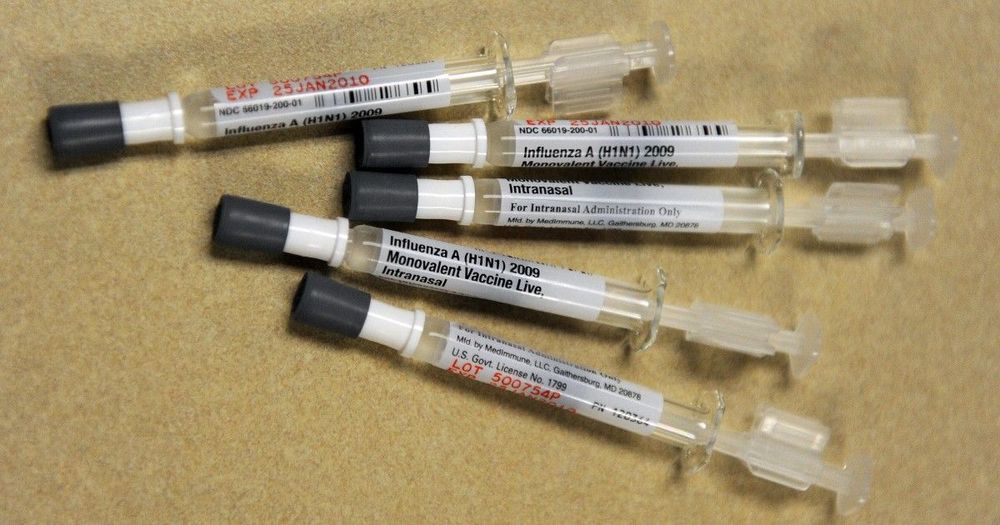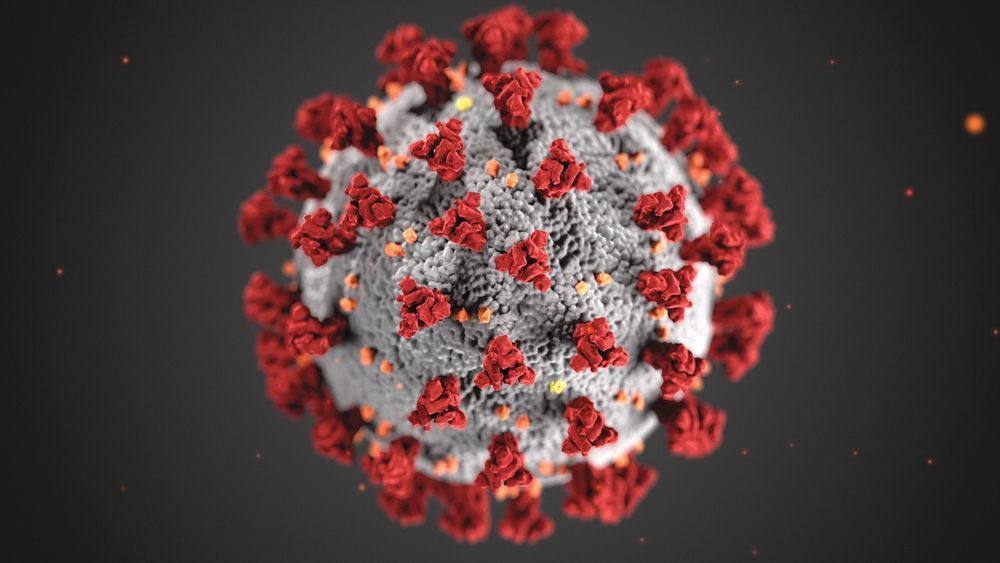Preventing the spread of the disease is also important, and vaccines delivered by nasal spray may do that.



The House will vote on legislation next month to remove cannabis from the Controlled Substances Act and erase some marijuana criminal records.
The bill would not legalize the drug, which would be left up to states, but the vote will still be a historic step in the effort to reduce legal penalties related to the drug. House Majority Whip James Clyburn (D-S.C.) said in an email to members that the vote will take place during the September work period.
BREAKING: The U.S. House will vote on a bill to remove cannabis from the Controlled Substances Act.

This laser technology can see inside our bodies like never before 🤯.

Summary: Transposable elements team up with evolutionary recent neurons to influence differentiation and physiological function of neurons in brain development.
Source: EPFL
The human genome contains over 4.5 million sequences of DNA called “transposable elements”, these virus-like entities that “jump” around and help regulate gene expression. They do this by binding transcription factors, which are proteins that regulate the rate of transcription of DNA to RNA, influencing gene expression in a broad range of biological events.

A striking new study has found young cancer survivors show high expression of a gene known to be an effective marker of aging. The researchers suggest this genetic biomarker could be used to identify cancer survivors most at risk of later-life frailty due to their treatment.
As we age, concentrations of a gene called p16INK4a gradually increase in our cells, making it a potentially useful molecular marker for aging. One of the gene’s roles is to slow cell division and reduce the proliferation of stem cells.
In a new study researchers set out to investigate p16INK4a levels in pediatric and young adult cancer survivors. The hypothesis was that increased p16INK4a levels could be an effective sign of frailty among young cancer survivors.

The news: IBM has built a new chemistry lab called RoboRXN in the cloud. It combines AI models, a cloud computing platform, and robots to help scientists design and synthesize new molecules while working from home.
How it works: The online lab platform allows scientists to log on through a web browser. On a blank canvas, they draw the skeletal structure of the molecular compounds they want to make, and the platform uses machine learning to predict the ingredients required and the order in which they should be mixed. It then sends the instructions to a robot in a remote lab to execute. Once the experiment is done, the platform sends a report to the scientists with the results.
Why it matters: New drugs and materials traditionally require an average of 10 years and $10 million to discover and bring to market. Much of that time is taken up by the laborious repetition of experiments to synthesize new compounds and learn from trial and error. IBM hopes that a platform like RoboRXN could dramatically speed up that process by predicting the recipes for compounds and automating experiments. In theory, it would lower the costs of drug development and allow scientists to react faster to health crises like the current pandemic, in which social distancing requirements have caused slowdowns in lab work.
This groundbreaking technique might be used to replace human organs with lab-grown versions 😮.

The coronavirus disease 2019 (COVID-19) pandemic has had a global impact on all aspects of health care, including surgical procedures. For urologists, it has affected and will continue to influence how we approach the care of patients preoperatively, intraoperatively, and postoperatively. A risk-benefit assessment of each patient undergoing surgery should be performed during the COVID-19 pandemic based on the urgency of the surgery and the risk of viral illness and transmission. Patients with advanced age and comorbidities have a higher incidence of mortality. Routine preoperative testing and symptom screening is recommended to identify those with COVID-19. Adequate personal protective equipment (PPE) for the surgical team is essential to protect health care workers and ensure an adequate workforce. For COVID-19 positive or suspected patients, the use of N95 respirators is recommended if available. The anesthesia method chosen should attempt to minimize aerosolization of the virus. Negative pressure rooms are strongly preferred for intubation/extubation and other aerosolizing procedures for COVID-19 positive patients or when COVID status is unknown. Although transmission has not yet been shown during laparoscopic and robotic procedures, efforts should be made to minimize the risk of aerosolization. Ultra-low particulate air filters are recommended for use during minimally invasive procedures to decrease the risk of viral transmission. Thorough cleaning and sterilization should be performed postoperatively with adequate time allowed for the operating room air to be cycled after procedures. COVID-19 patients should be separated from noninfected patients at all levels of care, including recovery, to decrease the risk of infection. Future directions will be guided by outcomes and infection rates as social distancing guidelines are relaxed and more surgical procedures are reintroduced. Recommendations should be adapted to the local environment and will continue to evolve as more data become available, the shortage of testing and PPE is resolved, and a vaccine and therapeutics for COVID-19 are developed.
The first reported cases of coronavirus disease 2019 (COVID-19), which is caused by severe acute respiratory syndrome coronavirus 2 (SARS-CoV-2), originated in Wuhan City, Hubei Province, China in December 2019. This respiratory disease spread outside of China, leading to outbreaks in Korea, Iran, Italy, and, eventually, the United States and the rest of the world. On March 11, 2020, the World Health Organization (WHO) declared the outbreak to be a pandemic. At the time of this writing, there are currently more than 1.3 million confirmed cases worldwide, with the total deaths numbering more than 74,000.1 This pandemic is unlike anything that has been seen in recent history.
From a urologic surgery perspective, many questions arise regarding the immediate and long-term care of our patients. The goal of this article is to summarize some of the current information available on preoperative, intraoperative, and postoperative care. As we gain more knowledge about how the virus behaves, this body of literature will inevitably change.

Chilled panels use less energy than conventional A/C and work in open spaces.
Many people beat the summer heat by cranking the air conditioning. However, air conditioners guzzle power and spew out millions of tons of carbon dioxide daily. They’re also not always good for your health—constant exposure to central A/C can increase risks of recirculating germs and causing breathing problems.
There’s a better alternative, say a team of researchers from the University of British Columbia, Princeton University, the University of California, Berkeley and the Singapore-ETH Centre.